World Geography And Politics Daily News | 01 Jul 2023

Views (83)
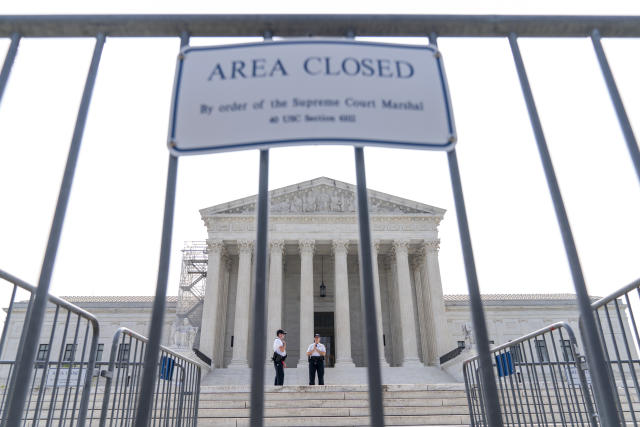
North Korea: "No intention to examine" Hyundai chief's bid to visit
North Korea said it has no intention to "examine" South Korea's Hyundai Group chief's plan to visit the North's Mount Kumgang, North Korea's foreign ministry said in a statement on Saturday. Hyundai Group Chairwoman Hyun Jeong-eun has been seeking to visit North Korea in August and submitted applications to South Korea's unification ministry, Yonhap news agency reported on Friday, citing an unnamed official at the ministry.
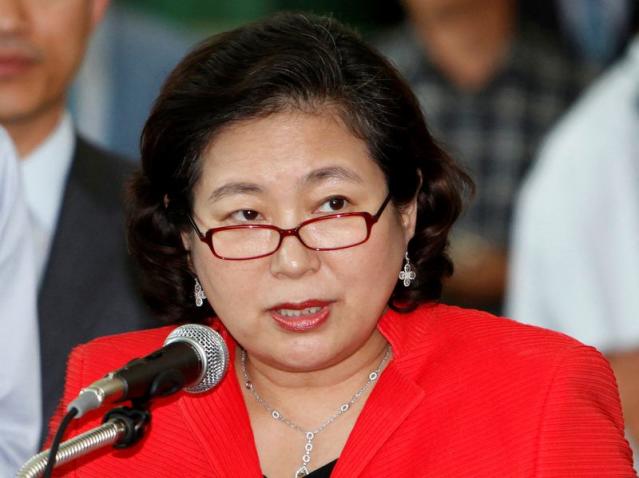
SEOUL (Reuters) - North Korea said it has no intention to "examine" South Korea's Hyundai Group chief's plan to visit the North's Mount Kumgang, North Korea's foreign ministry said in a statement on Saturday.
Hyundai Group Chairwoman Hyun Jeong-eun has been seeking to visit North Korea in August and submitted applications to South Korea's unification ministry, Yonhap news agency reported on Friday, citing an unnamed official at the ministry. Hyundai's late founder, Chung Ju-Yung, was born in North Korea.
In response to the South's media reports, the North said it has "neither been informed about any south Korean personage's willingness for visit nor known about it and that we have no intention to examine it."
"It is the policy of the DPRK government that entry by any personage of south Korea into its territory cannot be allowed," North Korea said in a statement, adding that its policy is unchangeable and will be maintained in the future.
South Korean President Yoon Suk Yeol on Thursday picked a conservative scholar and an outspoken critic of North Korea's human rights record as the country's new unification minister handling relations with Pyongyang in a cabinet reshuffle.
The nomination is likely to add strain to ties between the two Koreas. North Korea has long rejected criticism of its rights conditions as part of a plot to overthrow its rulers.
(Reporting by Heekyong Yang; Editing by Sandra Maler)
Leader of Russia's Wagner helped boot UN peacekeepers from Mali, US says
The United States said on Friday it was concerned about the Russian Wagner Group's destabilizing activities in Africa and accused the leader of the mercenary force of helping to engineer the departure of U.N. peacekeepers from Mali. than $200 million to Wagner since late 2021, White House national security spokesperson John Kirby told reporters. Kirby said Wagner Group leader Yevgeny Prigozhin, who led an aborted mutiny against the Kremlin last weekend, helped engineer the departure of the Unite
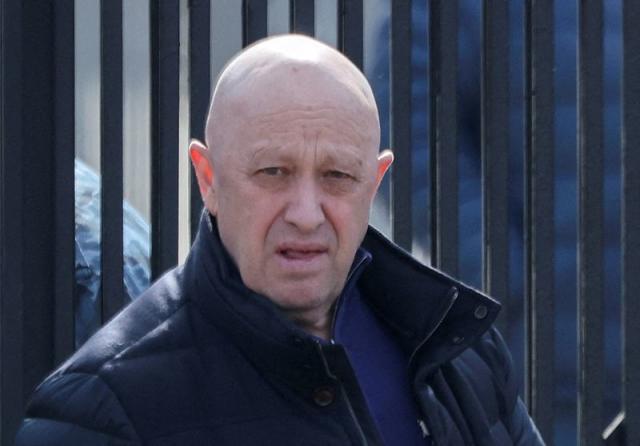
By Steve Holland and Daphne Psaledakis
WASHINGTON (Reuters) - The United States said on Friday it was concerned about the Russian Wagner Group's destabilizing activities in Africa and accused the leader of the mercenary force of helping to engineer the departure of U.N. peacekeepers from Mali.
The U.S. has information indicating Mali's transition government has paid more
than $200 million to Wagner since late 2021, White House national security spokesperson John Kirby told reporters.
Kirby said Wagner Group leader Yevgeny Prigozhin, who led an aborted mutiny against the Kremlin last weekend, helped engineer the departure of the United Nations peacekeeping force, known as MINUSMA, "to further Wagner's interests."
"We know that senior Malian officials worked directly with Prigozhin employees to inform the U.N. secretary general that Mali had revoked consent for the MINUSMA mission," Kirby said.
The U.N. Security Council voted on Friday to end the mission. Earlier this month, Mali asked the U.N. peacekeeping force to leave "without delay", citing a "crisis of confidence" between Malian authorities and the decade-long U.N. mission.
Two days before, the country's interim president, Colonel Assimi Goita, said on Twitter he was very satisfied with a phone call he had with Russian President Vladimir Putin, which he described as "direct and sincere".
Kirby said that despite the money paid by Mali to the Wagner Group, which a week ago launched an aborted armed mutiny in Russia, the security situation in the country has not improved.
Kirby's comments marked another step in the U.S. effort to push back against Wagner's influence in Africa. The U.S. Treasury Department on Tuesday imposed sanctions on four companies in the United Arab Emirates, Central African Republic and Russia it accused of being connected to the Wagner Group.
Kirby said Washington had seen no indication that Wagner was decreasing its intent to exploit African countries, "despite the events of last weekend."
Both Russia and Mali have said Russian fighters there are not mercenaries but trainers helping local troops fight a decade-long insurgency by Islamist militants.
Mali's leaders seized power in a 2021 coup and brought in Wagner after asking a French military mission to leave.
(Reporting by Steve Holland, Daphne Psaledakis and Doina Chiacu in Washington and Bate Felix in Dakar; Editing by Daniel Wallis)
Supreme Court Throws Out Biden’s Student-Loan Relief Plan
(Bloomberg) -- The US Supreme Court tossed out President Joe Biden’s plan to slash the student debt of more than 40 million people, rejecting one of his signature initiatives as exceeding his power.Most Read from BloombergTrump ‘Standing Order’ to Declassify Not Found by DOJ, Intelligence AgencyChina Has $3 Trillion of ‘Hidden’ Currency Reserves, Setser SaysA $100 Billion Wealth Migration Tilts US Economy’s Center of Gravity SouthChina’s Economic Woes Are Multiplying — and Xi Jinping Has No Easy
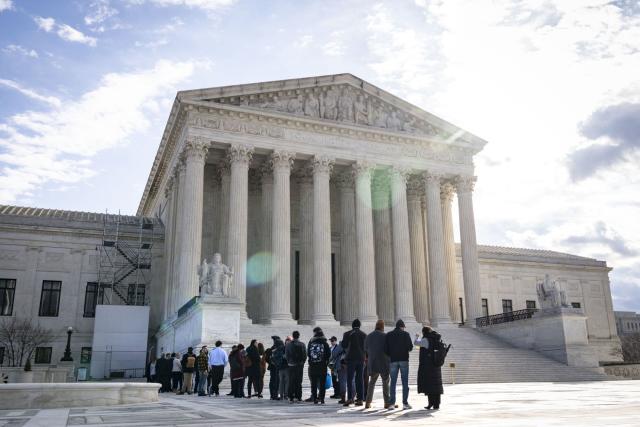
(Bloomberg) -- The US Supreme Court tossed out President Joe Biden’s plan to slash the student debt of more than 40 million people, rejecting one of his signature initiatives as exceeding his power.
Most Read from Bloomberg
The justices, voting 6-3 along ideological lines, sided with six Republican-led states that sued to challenge the program, which by one estimate would have cost $400 billion over 30 years.
Writing for the court, Chief Justice John Roberts said the administration was “seizing the power of the legislature” by trying to cancel so much student debt.
Biden is likely to face renewed pressure from lawmakers and loan-relief advocates to find an alternative way to cancel debt, possibly using a different legal rationale. For now, the high court ruling strips him of an accomplishment as he looks toward his reelection bid next year. Biden is expected to speak about options later Friday.
Student loan payments are set to resume in late August after a three-year pause. Millions of people could fall behind on their debt.
“This fight is not over,” said US Senator Elizabeth Warren, a Massachusetts Democrat and proponent of the relief plan. “The president has more tools to cancel student debt — and he must use them.”
The three liberals in dissent said that the states lacked the legal right to challenge the loan relief and that Congress authorized the forgiveness plan. “In every respect, the court today exceeds its proper, limited role in our nation’s governance,” Justice Elena Kagan wrote for the dissenters.
Read more: An Aggressive Supreme Court Reshapes US as Its Standing Erodes
The conservative-dominated Supreme Court has thwarted Biden’s agenda on multiple occasions. The court stopped Biden from blocking evictions during the pandemic and requiring workers to get Covid vaccines or regular tests. The justices have also slashed the Environmental Protection Agency’s power to address climate change and protect wetlands.
Biden’s plan would have forgiven as much as $20,000 in federal loans for certain borrowers making less than $125,000 per year, $250,000 for households.
“Biden’s student loan bailout unfairly punished Americans who already paid off their loans, saved for college, or made a different career choice,” Republican National Committee Chairwoman Ronna McDaniel said in a statement. “Americans saw right through this desperate vote grab, and we are thankful that the Supreme Court did as well.”
The administration contended the student-loan program was authorized by a 2003 law that gives the education secretary special powers when responding to national emergencies. The law, known as the Heroes Act, says the secretary can “waive or modify” provisions to ensure that debtors “are not placed in a worse position financially” because of a national emergency.
Roberts said that law doesn’t give the education secretary power to “rewrite that statute from the ground up.”
Roberts invoked the “major questions doctrine,” a legal concept that has become a potent tool under the current court for limiting the power of federal agencies and departments. The high court has said the executive branch needs clear congressional authorization before taking actions that have sweeping political and economic significance.
The states — Nebraska, Missouri, Arkansas, Iowa, Kansas, and South Carolina — and two borrowers challenged the program in separate cases. The court said separately the borrowers lacked standing. The Biden administration argued that all the challengers lack standing to sue because they aren’t being directly harmed by the policy.
State Standing
Roberts said the states had standing because of the impact on the Missouri Higher Education Loan Authority, a nonprofit, state-created entity that by law must contribute to a fund Missouri uses to pay for projects at public colleges. MOHELA itself wasn’t involved in the suit.
“The secretary’s plan will cut MOHELA’s revenues, impairing its efforts to aid Missouri college students,” he wrote. “This acknowledged harm to MOHELA in the performance of its public function is necessarily a direct injury to Missouri itself.”
Kagan blasted that reasoning, saying the states “have no personal stake” in the loan-forgiveness program.
“They are classic ideological plaintiffs: They think the plan a very bad idea, but they are no worse off because the secretary differs,” Kagan wrote.
The state case is Biden v. Nebraska, 22-506.
--With assistance from Janet Lorin and Emily Birnbaum.
(Updates with reaction, excerpts from opinions starting in sixth paragraph.)
Most Read from Bloomberg Businessweek
©2023 Bloomberg L.P.
Chair of House Foreign Affairs Committee wants more information on decision to revoke Iran special envoy’s security clearance
Rep. Michael McCaul, GOP chairman of the House Foreign Affairs Committee, is requesting that the State Department provide a detailed description of the allegations against Iran envoy Rob Malley that led to his security clearance being revoked, according to a new letter obtained by CNN.
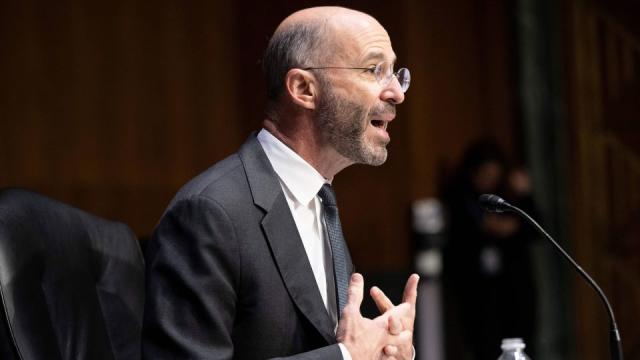
Rep. Michael McCaul, GOP chairman of the House Foreign Affairs Committee, is requesting that the State Department provide a detailed description of the allegations against Iran envoy Rob Malley that led to his security clearance being revoked, according to a new letter obtained by CNN.
“These reports raise serious concerns both regarding Malley’s conduct and whether the State Department misled Congress and the American public,” McCaul wrote. “While the suspension of Special Envoy Malley’s clearance is independently troubling, our concern is compounded by the State Department’s failure to respond to the Committee’s efforts to conduct oversight of its negotiations with and policy toward Iran.”
“Senior State Department officials informed the Committee that Special Envoy Malley was unable to testify or brief because he was on personal leave due to the illness of a close family member, for which my staff expressed sympathy. At no point did the Department indicate that Special Envoy Malley’s security clearance was suspended or under review, or that he was being investigated for potential misconduct,” he added.
McCaul said the Department’s failure to inform Congress of this matter “demonstrates at best a lack of candor, and at worst represents deliberate and potentially unlawful misinformation.”
McCaul specifically asks the department for “all documents and communications referring or related to the review and/or suspension” of Malley and “allegations and/or investigations of potential misconduct against him.”
McCaul also demanded that Secretary of State Antony Blinken provide a detailed account of any and all allegations, investigations and/or findings of misconduct related to Malley.
On Thursday State Department spokesperson Matt Miller confirmed to CNN that Malley was on leave, though earlier in the day he said that Malley was still the special envoy for Iran.
“Rob Malley is on leave and Abram Paley is serving as acting Special Envoy for Iran and leading the Department’s work in this area,” Miller told CNN on Thursday afternoon, after earlier in the day saying that Malley remained in the role.
Malley told CNN he expected the investigation to be resolved soon.
“I have been informed that my security clearance is under review. I have not been provided any further information, but I expect the investigation to be resolved favorably and soon. In the meantime, I am on leave,” Malley said on Thursday.
The UN's scientific and education organization votes to readmit the United States
The United Nations' scientific, educational and cultural organization has agreed to readmit the United States as a member. UNESCO’s governing board voted 132-10 on Friday to accept the U.S. proposal to rejoin the Paris-based agency. America's membership will become official once Secretary of State Antony Blinken or a designee formally accepts the invitation, according to Biden administration officials.
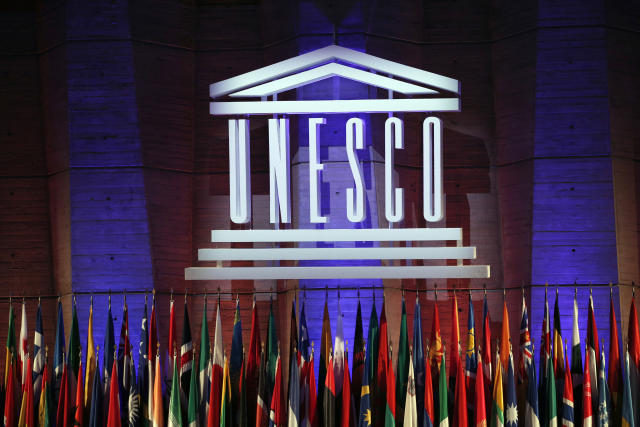
UNESCO’s governing board voted 132-10 on Friday to accept the U.S. proposal to rejoin the Paris-based agency. America's membership will become official once Secretary of State Antony Blinken or a designee formally accepts the invitation, according to Biden administration officials.
Blinken said the vote would “restore U.S. leadership on a host of issues of importance and value to the American people.”
“I am encouraged and grateful that today the membership accepted our proposal, which will allow the United States to take the next, formal steps toward fully rejoining the organization,” he said in a statement.
Russian, Palestinian and North Korean representatives had held up consideration of the U.S. proposal on Thursday with hours of procedural delays. That session was adjourned due to fatigue on the part of UNESCO interpreters.
In addition to Russia, North Korea and the Palestinians, those that voted against readmitting the U.S. were Belarus, China, Eritrea, Indonesia, Iran, Nicaragua and Syria.
The Biden administration had announced in early June that it would apply to rejoin the organization mainly because it was concerned that China was filling a gap left by the U.S. absence from the body. The 193-member UNESCO plays a major role in setting international standards for artificial intelligence and technology education around the world.
The U.S. and Israel stopped financing UNESCO after it voted to include Palestine as a member state in 2011.
The Biden administration has requested $150 million for the 2024 budget to go toward UNESCO dues and arrears. The plan foresees similar requests for the ensuing years until the full debt of $619 million is paid off.
That makes up a big chunk of UNESCO’s $534 million annual operating budget. Before leaving, the U.S. contributed 22% of the agency’s overall funding.
Israel has long accused the United Nations of anti-Israel bias. In 2012, over Israeli objections, the state of Palestine was recognized as a nonmember observer state by the General Assembly. The Palestinians claim the West Bank, east Jerusalem and Gaza Strip — territories captured by Israel in the 1967 Mideast war — for an independent state. Israel says the Palestinians’ efforts to win recognition at the U.N. are aimed at circumventing a negotiated settlement and meant to pressure Israel into concessions.
The United States previously pulled out of UNESCO under the Reagan administration in 1984 because it viewed the agency as mismanaged, corrupt and used to advance Soviet interests. It rejoined in 2003 during former President George W. Bush's presidency.
___
Associated Press writer Angela Charlton in Paris contributed to this report.
The Supreme Court will decide if some judges have gone too far in striking down gun restrictions
A year after its sweeping gun rights ruling, the Supreme Court agreed Friday to decide whether judges are going too far in striking down restrictions on firearms. The justices will hear the Biden administration's appeal of one such ruling that struck down as unconstitutional a federal law meant to keep guns away from people who have domestic violence restraining orders against them. Governments have to justify gun control laws by showing they are “consistent with the Nation’s historical tradition of firearm regulation,” Justice Clarence Thomas wrote in an opinion that was joined by the other five conservative justices.
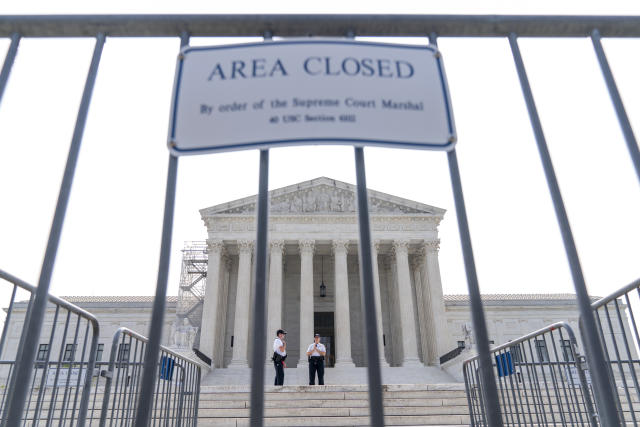
The justices will hear the Biden administration's appeal of one such ruling that struck down as unconstitutional a federal law meant to keep guns away from people who have domestic violence restraining orders against them.
Arguments will take place in the fall in the first case in which the court could define the limits on new standards for evaluating gun laws that its conservative majority set out last June.
Governments have to justify gun control laws by showing they are “consistent with the Nation’s historical tradition of firearm regulation,” Justice Clarence Thomas wrote in an opinion that was joined by the other five conservative justices. Until that ruling, judges could consider whether a law serves public interests such as enhancing public safety.
The case now before the court involves Zackey Rahimi, whose conviction on possessing guns while subject to a restraining order was thrown out by a panel of three Republican appointees on the 5th U.S. Circuit Court of Appeals.
Rahimi was involved in five shootings over two months in and around Arlington, Texas, U.S. Circuit Judge Cory Wilson noted. When police identified Rahimi as a suspect in the shootings and showed up at his home with a search warrant, Rahimi admitted both to having guns in the house and being subject to a domestic violence restraining order that prohibited gun possession, Wilson wrote.
But though “hardly a model citizen,” Rahimi did not lose his constitutional right to have guns, Wilson concluded. The law at issue could not be justified by looking to history, he wrote for a unanimous panel.
Wilson and Judge James Ho were nominated by President Donald Trump. The third judge, Edith Jones, was chosen by President Ronald Reagan.
The appeals court initially upheld the conviction, then reconsidered once the Supreme Court ruled in Bruen. At least one district court has upheld the law since the Bruen decision
Solicitor General Elizabeth Prelogar, the Biden administration’s top Supreme Court lawyer, cited an earlier high court decision involving gun bans for domestic violence convictions to urge the justices to take up the case. “More than a million acts of domestic violence occur in the United States every year, and the presence of a firearm increases the chance that violence will escalate to homicide,” Prelogar wrote.
On the day the court finished deciding the cases argued in recent months, the legal fight over a gun law was among six cases that the justices added to their agenda for the term that begins on the first Monday in October.
The other cases include:
0 Likes
